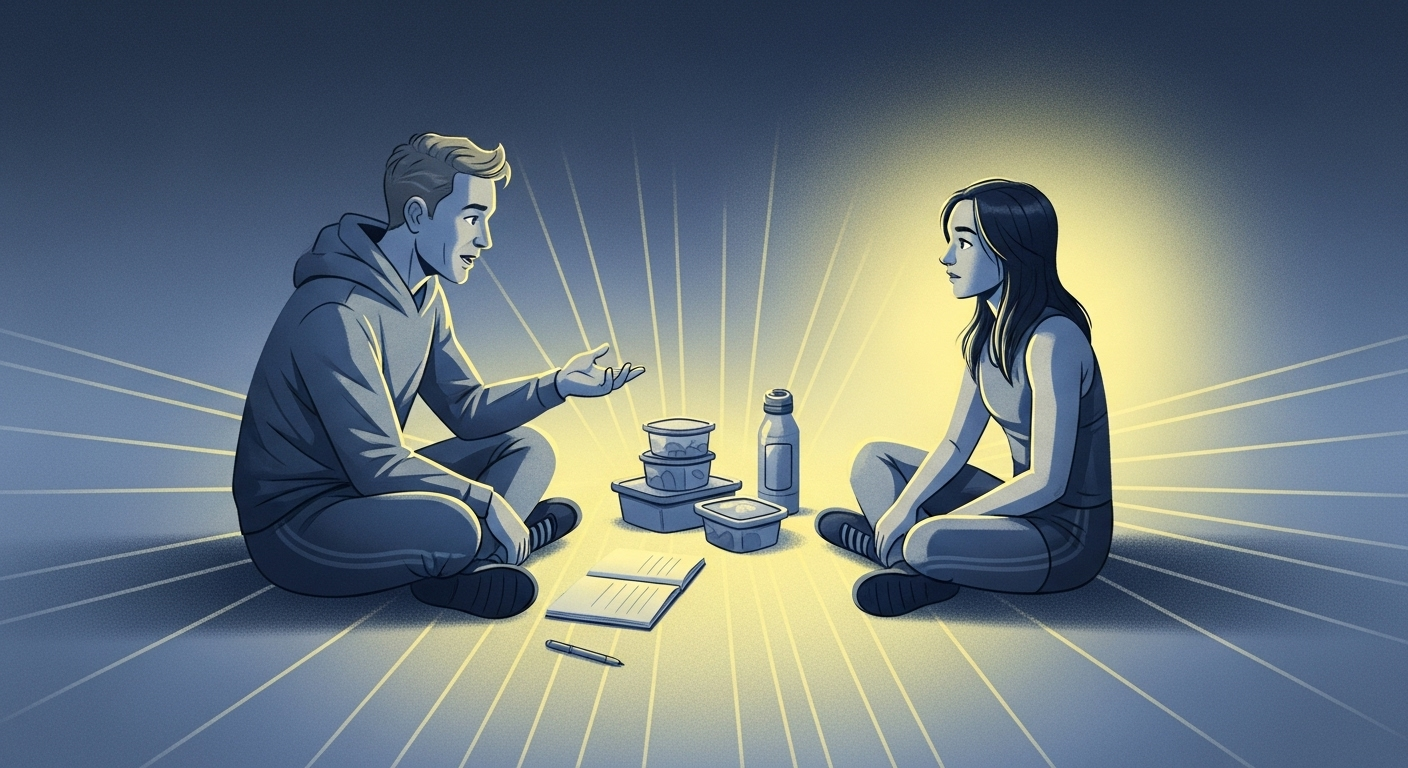How Wrestling Parents Can Support Healthy Weight Cutting Habits
Conversations about food and weight are some of the most sensitive topics you'll ever have with your daughter. And in a weight class sport like wrestling, they will be unavoidable. These discussions are powerful, and can help build her confidence and long-term health. In my own opinion, protecting your wrestler’s health is the most important investment you could make. Invest in the long-term success of your athlete through learning as much as you can about technique, fueling, and high level training. Dropping to lower weight classes often feeds the belief that success depends on cutting.
As a parent of a wrestler, your role goes beyond cheering from the sidelines. You're helping shape how she views nutrition, performance, and self-worth — especially during the high-stakes world of weight cutting.
Focus on Health, Not Size
When talking about food, exercise, or body changes, steer the conversation toward health behaviors rather than body appearance. Instead of commenting on weight gain, body shape, or "eating too much," talk about fueling for strength, energy, recovery, and overall well-being.
Helpful phrases:
"You’ve been training a lot, and your body needs a lot of energy to keep up with everything you're doing."
"Food is fuel that helps you feel your best. What’s the best choice for you today?"
"When it comes to weight class, let's focus on what makes you feel strong and healthy."
Avoid labeling foods as "good" or "bad." Instead, talk about balance, nourishment, and listening to her body's needs. You can discuss what is helpful or harmful for her own fueling goals. If she’s choosing to fuel with food void of nutrients, minerals, or vitamins, help her with choices that will help support her training. This may look like shifting habits as a family, to support a healthier lifestyle.
Watch Your Own Language About Food and Bodies
Kids pick up on everything. The way you talk about your own body, dieting, or exercise deeply impacts how your daughter thinks about herself.
Avoid body shaming yourself or others. Comments like "I feel so fat" or "I need to burn off that dessert" teach her to tie food and exercise to guilt.
Model a positive relationship with food. Enjoy meals without assigning moral value to foods (e.g., "I was bad today, I had a cookie").
Celebrate what bodies can do, not just how they look.
Remember: even casual, offhand remarks can stick.
Don't Make Weight the Enemy
Even if your daughter needs to manage her weight for sports, growth, or health, the focus should be on habits and overall health metrics, not the number on a scale.
Weight naturally fluctuates during growth spurts, puberty, menstruation, and high amounts of training. Frame weight as one small piece of the puzzle, not a defining measure of worth or success.
If weight loss or gain is medically necessary:
Work with a pediatrician and/or dietitian experienced with adolescents.
Make it about supporting her body's needs, not "fixing" her.
Why Your Daughter’s Period Is a Window Into Her Health
It’s not "just" a period—it's a vital sign. If your daughter is training hard and her period is irregular or missing, that's a red flag. Her menstrual cycle is one of the clearest signals that her body is getting what it needs to function and recover.
A Healthy Cycle Means:
She’s getting enough energy from food to support both training and essential functions like hormone production.
She’s recovering properly from workouts.
She’s protecting her bone health, mood regulation, and future fertility.
Warning Signs:
Missed periods for three or more months (outside of pregnancy or birth control)
Irregular cycles that were previously consistent
Delayed first period beyond age 15
Period loss after increasing training or changing diet
How to Talk About It:
Normalize the conversation. Periods are a health check, not something to be embarrassed about.
Stay non-judgmental. Say, "You use your body to train and we should learn all it’s healthy signals. Your period is one way it tells us how it’s doing."
Prioritize fueling and rest. Period disruptions often signal that more energy and recovery time are needed.
If you notice problems, involve a doctor who understands female athletes. This is called the Female Athlete Triad, and ignoring period issues can have serious long-term health effects, including weakened bones and hormonal dysfunction. You can learn more about the female and male athlete triad here.
When to Bring in Experts
If you're worried about:
Disordered eating behaviors
Significant weight changes
Loss of periods
Anxiety about food or exercise
Don't hesitate to bring in a pediatrician, sports dietitian, or therapist who specializes in adolescents. Early support can prevent serious issues down the line. Use these opportunities to keep the dialogue open between you and your daughter so you can have the same goals around her health.
Final Thought
Your voice matters. When you frame food and body conversations around health, strength, and self-respect, you help your daughter build resilience—not just in sports, but for the rest of her life.
One of the most powerful tools you can use to guide these conversations is the The Female Wrestler’s Guide to Weight Mastery. This isn’t just another nutrition handout—it’s the only guide of its kind, designed specifically for female wrestlers and their parents. It gives you the confidence to talk about weight, cutting, performance, and body image in a way that builds trust, not fear.
You’ll learn how to spot harmful patterns before they start, how to fuel her body without pushing restriction, and how to help her build lifelong healthy habits around food and competition. If you're serious about helping your daughter thrive in wrestling and beyond, this guide is a must-have.

